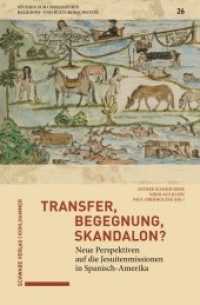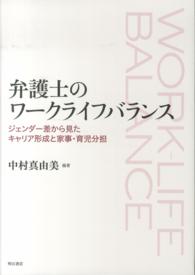- ホーム
- > 洋書
- > ドイツ書
- > Social Sciences, Jurisprudence & Economy
- > Politics, Society, Work
- > public administration
Description
(Text)
This book is about the continuing life of Balinese culture and traditions currently under threat from unregulated economic development, mass tourism, and migration. Critical to this text are considerations surrounding the control of land and its improvements, as well as the success and failure of urban planning within the sphere of cultural conservation. The book argues that State planning systems are inappropriate in the Balinese context. While this statement seems fairly straightforward on the surface, it involves a complex understanding of the totality of Balinese culture. Resulting conflicts are demonstrated by existing cases. Here, modern state planning establishes the legal foundation on which capitalist practices and the domination of private enterprises are nourished. While the role of the government in promoting tourism is acknowledged, the book measures these against the actuality of the Balinese way of life. Overall, the book overviews spatial problems experienced in Bali. It provides an in depth analysis of how state planning systems are locked in critical conflict with the Balinese Adat. Finally, the necessary features of future planning systems are proposed.
(Author portrait)
Gusti Ayu Made Suartika is a lecturer at the Department ofArchitecture, Udayana University, Bali. Her research interests inurban planning and development in developing countries arereflected in her publications and research, funded by variousinternational bodies in Indonesia, Australia, Japan and China.






